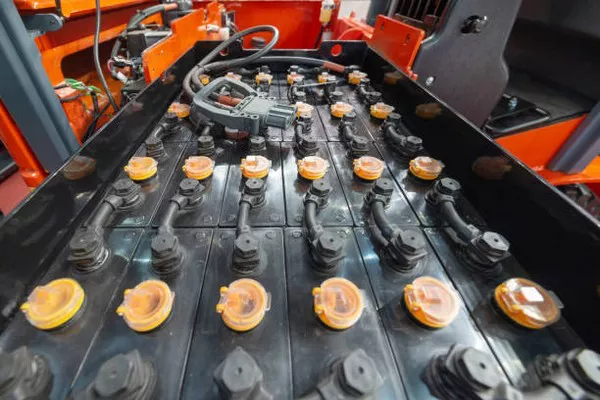Generac generators have established themselves as reliable power sources in both residential and commercial settings. Known for their durability and efficiency, these generators are pivotal during power outages, providing uninterrupted electricity to keep essential systems running. One crucial aspect of operating a Generac generator is understanding its fuel consumption. This knowledge helps in planning and optimizing the use of the generator, ensuring it runs efficiently without unexpected fuel shortages. This article delves into the factors influencing fuel consumption, typical usage rates, and tips for efficient fuel management.
Factors Affecting Fuel Consumption
Fuel consumption in Generac generators depends on several factors. These include the generator’s size, load demand, fuel type, and environmental conditions.
Generator Size and Capacity: Generac offers a wide range of generators, from portable units to large standby models. The size and capacity of a generator significantly affect its fuel consumption. Larger generators with higher power output naturally consume more fuel. For instance, a 22kW standby generator will use more fuel than a 7.5kW portable unit.
Load Demand: The load placed on the generator directly impacts fuel usage. A generator running at full capacity will consume more fuel than one operating at half-load. It’s crucial to match the generator size to the expected load to optimize fuel consumption. Running a generator at a lower load than its capacity can lead to inefficiencies and increased fuel use per kilowatt-hour generated.
Fuel Type: Generac generators run on different types of fuel, including gasoline, propane (LP), and natural gas (NG). Each fuel type has its consumption rate and energy efficiency. For example, propane and natural gas are often more efficient and cleaner-burning compared to gasoline.
Environmental Conditions: External factors such as temperature, altitude, and humidity can influence generator performance and fuel consumption. Generators tend to consume more fuel in extreme temperatures as they work harder to maintain optimal operating conditions.
Fuel Consumption Rates for Different Generac Models
Understanding the typical fuel consumption rates for various Generac models can help in planning and managing fuel resources effectively. Below are examples of fuel consumption rates for popular Generac generators under different loads.
Portable Generators:
Generac GP8000E (8kW): This gasoline-powered generator consumes approximately 0.95 gallons per hour at 50% load. At full load, the consumption can increase to about 1.2 gallons per hour.
Generac iQ3500 (3.5kW): Known for its fuel efficiency, this inverter generator uses around 0.2 gallons per hour at 50% load, making it ideal for small power needs and fuel conservation.
Standby Generators:
Generac Guardian Series 22kW: Running on propane, this model consumes approximately 2.1 gallons per hour at 50% load and up to 3.6 gallons per hour at full load. When using natural gas, it uses about 206 cubic feet per hour at 50% load and 367 cubic feet per hour at full load.
Generac Protector Series 30kW: This larger standby generator uses around 3.2 gallons of propane per hour at 50% load and up to 5.4 gallons per hour at full load. For natural gas, the consumption is about 294 cubic feet per hour at 50% load and 519 cubic feet per hour at full load.
Industrial Generators:
Generac Industrial Diesel 100kW: Diesel-powered models like this consume approximately 7.4 gallons per hour at 50% load and about 14 gallons per hour at full load, highlighting the higher consumption rates associated with larger, industrial-scale generators.
Tips for Efficient Fuel Management
To maximize the efficiency and extend the runtime of your Generac generator, consider the following tips for fuel management:
Regular Maintenance: Keeping your generator well-maintained ensures it runs efficiently. Regular oil changes, air filter replacements, and professional inspections can prevent issues that lead to increased fuel consumption.
Optimal Load Management: Avoid overloading or underloading your generator. Using a generator at or near its rated capacity is most efficient. Distribute the load evenly and avoid sudden spikes in demand that can cause the generator to work harder and use more fuel.
Use Quality Fuel: Always use high-quality fuel recommended by Generac. Poor quality or contaminated fuel can reduce efficiency and increase consumption. For propane and natural gas models, ensure the fuel supply is clean and free from impurities.
Invest in Fuel Monitoring Systems: Many modern Generac generators come with fuel monitoring systems that provide real-time data on fuel levels and consumption rates. These systems can alert you when fuel levels are low, helping you plan refueling and avoid downtime.
Environment and Placement: Position your generator in a location that is sheltered from extreme weather conditions but well-ventilated. This helps maintain optimal operating temperatures and reduces unnecessary fuel consumption.
EcoMode and Smart Features: Utilize any eco-mode or smart features available on your Generac generator. These modes adjust the engine speed to match the load, conserving fuel when demand is low.
See also What Is The Best Portable Generator For Camping
Conclusion
Understanding the fuel consumption of Generac generators is essential for effective planning and operation. By considering factors such as generator size, load demand, fuel type, and environmental conditions, you can better estimate fuel usage and optimize your generator’s efficiency. Whether you are using a portable generator for occasional power needs or a standby generator for continuous power supply, implementing efficient fuel management practices ensures you get the most out of your Generac generator, saving fuel and money while ensuring reliable power when you need it most.

